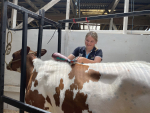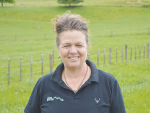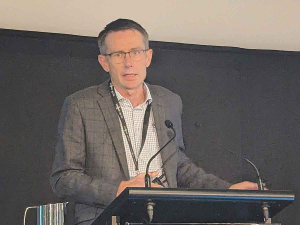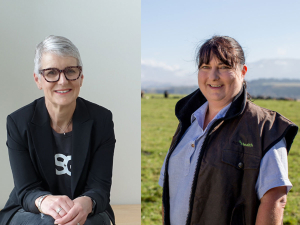In the wake of the Mycoplasma bovis outbreak, one of New Zealand’s main bull semen suppliers is calling for an industry body to be set up to implement country-wide testing and biosecurity standards.
The industry must adapt to ensure farmers have confidence in the range of bovine genetic options available to them, said Hank Lina, general manager of World Wide Sires NZ.
Individual companies are assuring farmers that their products were safe, but “that, by default, makes it marketing,” said Lina.
Farmers do not know what to think.
“You could almost say that each company’s trying to profiteer off it in some way and we need to remove that. When this serious stuff happens we need to work together and we need to agree, for the simple reason of giving our farmers answers they can actually hold on to.”
Lina said the culling of thousands of cows in the infected herds brought stress and anguish for the affected farmers but the outbreak also meant a more subtle and long-lasting concern for all farmers over the long-term safety of semen supplies.
All the semen companies and any other associated business in the herd improvement industry need to be represented in an industry body, Lina said.
“We need to have a standards body so we all agree on the same protocols that are proven and accepted, so we work off the same song sheet and we’re all working together.”
In the US, the dairy industry has the National Association of Animal Breeders (NAAB) and its subsidiary Certified Semen Services (CSS), which provide objective auditing of semen and sire health and identification.
NAAB protocols include using a cocktail of antibiotics in the extended semen and only using frozen semen. Fresh semen would require more or stronger antibiotics which would then have a spermicidal effect.
NAAB said recently that while there have been reports in scientific literature of M. bovis and other mycoplasma species in unprocessed bovine semen, there are no documented reports of transmission through the commercial use of frozen semen.
The protocols do not call for individual sires to be tested for Mycoplasma bovis.
“The likelihood of potential disease transmission is negligible when healthy bulls are managed in a risk-reduced environment and their semen is processed using a protocol that has documented efficacy against this organism. NAAB members that produce frozen bovine semen adhere to a prescribed semen processing protocol utilising a combination of antibiotics in approved extenders.”
Lina said that in the past 35 years there had been no reports of M.bovis being cultured from semen collected, processed and tested to the standard defined by CSS.
NAAB members, which include his parent company, accounted for about 95% of dairy cattle semen sales in the US. Those companies had been very competitive in the field but under the NAAB umbrella they came together for the common good of the livestock industry, he said.
World Wide Sires’ bulls are monitored from birth and have regular health checks with never any symptoms found, said Lina. Together with the protocols on frozen semen there is no need for further testing of bulls so long as the health checks are maintained throughout the life of the bull, he said.
Because of the NZ outbreak, Lina said World Wide Sires sent bulls back to the collection centre in the US for fresh unfrozen samples which were sent for testing at Cornell University, the UK and at Wallaceville. All tested negative, as did samples of stocks in NZ given to MPI for testing.
“We’ve been happy working with MPI. We provided semen to the Van Leeuwen Group so naturally it was in our interest to work with them and we’ve done so from the very get-go. I speak very highly of MPI,” he added.
Lina said NZ AB companies had understandably been quick to test and declare their bulls free of the disease, which provided some reassurance for the current dairy mating season. Bull breeders had similarly worked with veterinarians to develop a test for all run bulls.
However, testing is being done in a number of laboratories and it is the variability of the testing that is being questioned by countries which “have the power of hindsight”, i.e. where Mycoplasma bovis and other diseases are endemic, he said.
World Wide Sires NZ is putting its hand up to work with the Government, MPI, DairyNZ and other AB companies to work together and implement a set of standards which will provide the reassurance needed in future, he said.

















